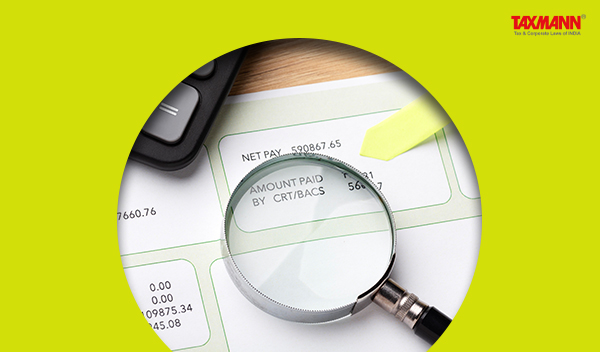Orders Denying ITC to Be Set Aside Since Assessee Was Not Allowed to Cross Examine Witnesses | HC
- Blog|News|GST & Customs|
- 2 Min Read
- By Taxmann
- |
- Last Updated on 29 February, 2024

Case Details: B. Sivakumar v. State Officer - [2024] 159 taxmann.com 719 (Madras)
Judiciary and Counsel Details
-
- C. Saravanan, J.
- T.K. Bhaskar for the Petitioner.
- V. Mahalingam for the Respondent.
Facts of the Case
In the present case, the dispute was related to wrong availing of input tax credit by assessee and the petition had been filed by assessee to quash impugned orders denying ITC. It was contended that bank had put assessee’s mills/factories under lock and seal under provisions of Securitization and Reconstruction of Financial Assets and Enforcement of Securities Interest Act, 2002.
Since business premises of assessee was under lock and seal by Bank, the records could not be presented before the GST Officials and they visited assessee’s premises with bank officials to obtain related records in his absence but could not find any records and documents. The assessee had also requested GST Officials to permit assessee to cross-examine officers from bank but he was not allowed.
High Court Held
The Honorable High Court noted that despite officials of bank were summoned for cross-examination, assessee was not allowed to cross examine them and if cross-examination was allowed, assessee would have established that all documents were available and would be able to prove that Input Tax Credit were validly availed.
Therefore, the Court held that the impugned orders had been passed in violation of principles of natural justice since assessee was not allowed to cross examine Bank officials who had taken possession of factory. Thus, the order was liable to be set aside and matter was remitted back.
Disclaimer: The content/information published on the website is only for general information of the user and shall not be construed as legal advice. While the Taxmann has exercised reasonable efforts to ensure the veracity of information/content published, Taxmann shall be under no liability in any manner whatsoever for incorrect information, if any.

Taxmann Publications has a dedicated in-house Research & Editorial Team. This team consists of a team of Chartered Accountants, Company Secretaries, and Lawyers. This team works under the guidance and supervision of editor-in-chief Mr Rakesh Bhargava.
The Research and Editorial Team is responsible for developing reliable and accurate content for the readers. The team follows the six-sigma approach to achieve the benchmark of zero error in its publications and research platforms. The team ensures that the following publication guidelines are thoroughly followed while developing the content:
- The statutory material is obtained only from the authorized and reliable sources
- All the latest developments in the judicial and legislative fields are covered
- Prepare the analytical write-ups on current, controversial, and important issues to help the readers to understand the concept and its implications
- Every content published by Taxmann is complete, accurate and lucid
- All evidence-based statements are supported with proper reference to Section, Circular No., Notification No. or citations
- The golden rules of grammar, style and consistency are thoroughly followed
- Font and size that’s easy to read and remain consistent across all imprint and digital publications are applied



 CA | CS | CMA
CA | CS | CMA
